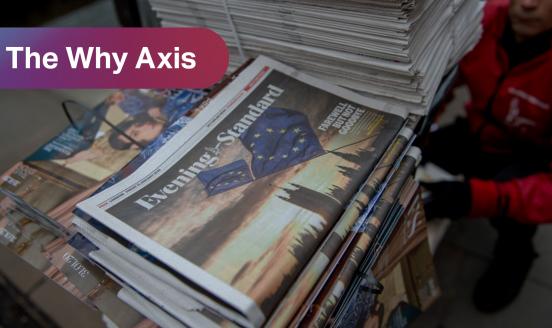The political economy of macroprudential policy
What’s at stake: the emergence of renewed interest in macroprudential policy has characterised the aftermath of the great recession. There is not yet
Jon Danielsson and Robert Macrae write on VoxEU that the fatal flaw in macroprudential policy is that it ignores political risk, when political risk may be a major cause of systemic financial risk. Brexit, the rise of populist parties in Europe and the election of Donald Trump as President of the Unidìted States of America are examples of political risks that could potentially have financial stability repercussion. Yet, political risk is largely missing from the macroprudential debate, which makes it institutionally difficult for the financial authorities to publicly anticipate crises that have predominantly political causes, and difficult also to mitigate crises once they happen. If financial regulators take steps to address political risk to achieve macroprudential stability, they put themselves in a dangerous position as being involved in a political debate with macroprudential consequences jeopardises their reputation for impartiality, threatens their independence, and affects their ability to execute both macropru and monetary policies. If the authorities visibly react to political initiatives that affect financial stability, there is a danger this would be interpreted as frustrating or twisting democratic decisions.
The successful implementation of macroprudential policy demands among other things that macroprudential authorities have legitimacy, a reputation for impartiality, and political support. It is often assumed that macropru has the similar legitimacy to monetary policy, but Danielsson and Macrae disagree, arguing that the macropru policymaker is faced with a complex, ill-defined policy domain in which there is not a clear consensus on either the problem or the objective. This makes it harder to mobilise the sort of political support that monetary policy can get and may frustrate the preventive role of macroprudential, condemning it to be solely reactive and thus less effective.
Part of the reasons why the exercise of macroprudential policy is prone to be politically sensitive, is the fact that financial cycles can have an impact on fiscal positions. It follows that fiscal policy may have a role to play in preventive macroprudential policy. Borio, Lombardi and Zampolli argue that this aspect of financial boom and busts has frequently been neglected, and yet the latest financial crisis and history show that financial cycles can wreak havoc with public finances. They argue that this warrants the designing of fiscal policy in a way consistent with this threat, so as not to endanger the sovereign’s creditworthiness and retain valuable fiscal space. In this paper, we have taken a first step in that direction.
The ultimate objective should be to design fiscal policy as part of a broader macro-financial stability framework aimed at taming the financial cycle and ensuring sustainable and balanced growth. Taming the financial cycle is not a task that can be left to macroprudential measures alone, and monetary and fiscal policies have a role to play. For fiscal policy, this is not just a matter of ensuring that it retains fiscal space to address the financial bust without endangering the sovereign’s creditworthiness or having it become a source of macroeconomic instability more generally. Fiscal policy ought to play a more proactive role to restrain financial booms in the first place. This means leaning more deliberately against financial booms, possibly with corresponding targets for deficits and debt, and possibly using the tax code and other fiscal instruments to remove any bias in favour of debt over equity.
Andrew Baker argues the emerging political economy of macroprudential regulation revolves around five paradoxes. The first three of these are paradoxes that characterise the financial system and are identified by the macroprudential perspective: the fallacies of composition; the procyclical paradox of credit and the paradox of financial instability. In seeking to respond to these paradoxes, macroprudential policy, generates a further two distinctly institutional and political paradoxes: the political paradox of countercyclical policy and technocracy’s depoliticisation and legitimacy paradox. The last of these is a central bankers’ paradox which relates to the source of independent central bank authority and the difficulty of building legitimacy and public support for macroprudential regulation. Baker argues that functioning macroprudential regulation is about executing a technocratic control project that rests on a depoliticisation strategy, that in turn risks politicising central banks, exposing their claims to technical authority to critical scrutiny and potential political backlash. What macroprudential policy regimes require, is a sense of social purpose that is plausible and intuitive to the public at large and therefore politically saleable. The difficult question facing macroprudential regulation is who should articulate and develops this sense of wider social purpose
Lucy Goodhart looks at macro-prudential policy and the new political economy of the Federal Reserve. She argues that Implementing macroprudential policy carries the potential for distributional conflict with the largest financial firms and the politicization of central bank policy. In light of this risk, she analyses the institutional implications of macro-prudential policy for the US Federal Reserve, based on interviews with financial regulators, including Fed staffers and policy makers, and with journalists who report on financial regulation. Based on these sources, she identifies the factors that contributed to Fed autonomy in the conduct of monetary policy during the Volcker Revolution and assess the extent to which those same factors hold for macro-prudential policy.



